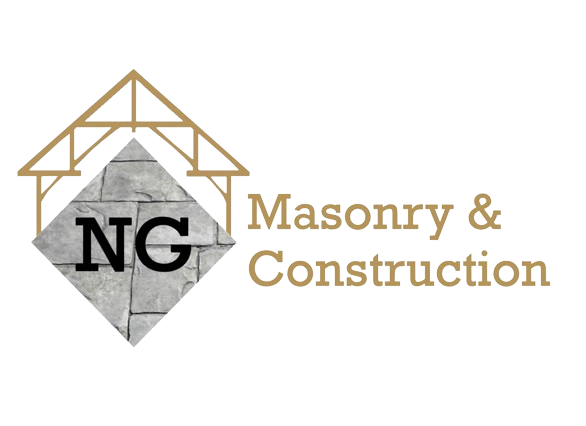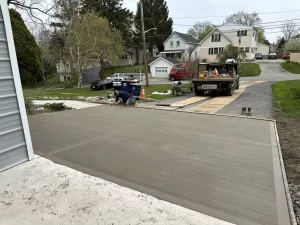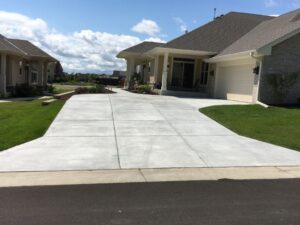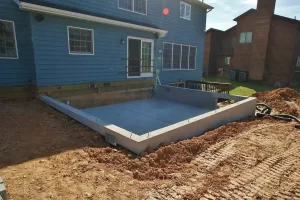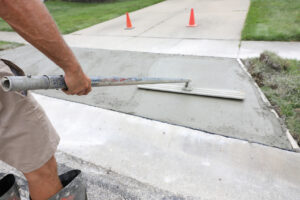Building a stable and resilient home starts with a strong foundation. Block foundations, made from materials like concrete blocks, offer robust support and durability, which are crucial for withstanding various environmental and structural challenges.
This blog explores the importance of block foundations in ensuring the stability of your home, covering construction methods, maintenance practices, and effective repair strategies. Whether you're constructing a new home or considering foundation upgrades, understanding the role of block foundations is essential for safeguarding your investment and ensuring long-term structural integrity.
Understanding Foundation Construction
Building a solid foundation is crucial for any home's structural stability and longevity. Professionals emphasize the importance of choosing the right foundation type based on soil conditions, climate, and the intended structure load. Concrete blocks are a popular option due to their strength and ease of construction.
Choosing the right materials and construction techniques can significantly impact the overall durability of the foundation. Block foundations are particularly valued for their ability to handle diverse environmental conditions and their relatively straightforward installation process. The interlocking nature of concrete blocks provides additional stability, making them a preferred choice for many builders.
Soil Types and Foundation Stability
The type of soil beneath a foundation plays a pivotal role in its stability. Different soil types, such as clay or sand, affect how a foundation reacts to moisture and settles over time. Understanding soil conditions helps professionals design foundations that mitigate potential issues like structural damage or uneven settling.
Assessing the soil type before construction is essential for determining the appropriate foundation design. Clay soils, which expand and contract with moisture changes, require specific considerations to prevent shifting and cracking. Conversely, sandy soils may require enhanced compaction and stabilization techniques to ensure a firm foundation base.
Ensuring Structural Strength
The strength of a foundation determines its ability to support the entire structure above it. During construction, professionals assess factors like compressive strength and load-bearing capacity to ensure the foundation can withstand heavy loads and environmental pressures.
Engineers often conduct thorough tests to measure the soil's bearing capacity and the foundation's compressive strength. This data informs the design process, ensuring that the foundation can support not only the weight of the building but also additional forces such as wind, seismic activity, and changes in moisture levels. These considerations are vital for long-term structural integrity.
Methods for Foundation Strength
Achieving a robust and durable foundation requires employing specific construction techniques and strategies. These methods are designed to enhance the foundation's ability to support the structure, withstand environmental stresses, and ensure long-term stability. Professionals like NG Masonry & Construction carefully select and implement these techniques based on each project's unique requirements.
During construction, various methods enhance foundation strength, such as:
- Reinforced Concrete: Incorporating steel reinforcement bars (rebar) within concrete enhances its tensile strength, preventing cracking and increasing overall structural durability.
- Deep Footings: Digging deep into stable soil layers allows for the placement of footings below potential frost lines and unstable surface soil, providing a stable base for the foundation.
- Gravel Bedding: Using a layer of gravel beneath concrete footings improves drainage and helps distribute the load evenly, reducing the risk of settling and uneven settling.
- Pier and Beam Construction: This method uses concrete piers to support beams that distribute the load of the structure evenly, reducing stress on the foundation and minimizing the risk of structural damage over time.
These techniques ensure the foundation can handle the structural demands and prevent issues such as cracks or sinking over time. Each method has its advantages, and the choice often depends on the specific site conditions and structural requirements.
Preventative Maintenance for Longevity
Regular maintenance is essential to preserving a foundation's integrity and preventing costly repairs. Effective maintenance practices include inspecting for signs of damage, monitoring moisture levels, and addressing issues promptly to avoid extensive damage.
Proactive measures such as sealing cracks, ensuring proper drainage, and maintaining a stable moisture level around the foundation can extend its life and prevent serious structural problems. Regular inspections by a qualified professional can identify potential issues early, allowing for timely repairs and avoiding more significant damage.
Maintenance Strategies
Implementing regular inspections and maintenance routines helps identify early signs of damage, such as minor cracks or moisture intrusion before they escalate into costly repairs. In addition to routine checks, homeowners should consider seasonal maintenance activities, such as adjusting drainage systems during rainy seasons and checking for frost heave in colder climates. These strategies can significantly reduce the risk of foundation damage and prolong the structure's overall lifespan.
Waterproofing and Drainage Systems
Proper waterproofing and drainage systems are critical for protecting foundations from water damage. These systems redirect water away from the foundation, preventing issues like erosion, mold growth, and structural instability.
Waterproofing materials and techniques have advanced significantly, offering more effective and long-lasting solutions. These technologies, from exterior waterproofing membranes to interior sealants, help keep foundations dry and safe from water-related issues. Integrating these systems during construction can save homeowners from costly repairs in the future.
Effective Drainage Solutions
Installing effective drainage solutions, such as French drains or sump pumps, ensures water does not accumulate around the foundation, reducing the risk of water-related damage. Proper grading around the home and the use of downspout extensions can further help direct water away from the foundation. Combining these methods with robust waterproofing techniques creates a comprehensive defense against moisture intrusion and its associated problems.
Foundation Repair: Addressing Structural Issues
Despite proactive measures, foundations may develop cracks or settle unevenly over time. Understanding common repair methods and consulting qualified professionals like NG Masonry & Construction is crucial to addressing these issues promptly and effectively.
Repair techniques vary based on the type and severity of the damage. Minor cracks might only require sealing, while more significant issues could necessitate underpinning or the installation of foundation piers. Engaging experienced professionals ensures that repairs are conducted correctly and that the foundation's integrity is restored.
Post-Repair Maintenance
After repairing foundation issues, ongoing maintenance is necessary to monitor the effectiveness of repairs and prevent future structural issues. Regular inspections and maintenance help ensure the long-term stability and safety of the foundation.
Maintaining a detailed record of past repairs and inspections can be beneficial for future maintenance and any potential property resale. Consistent monitoring allows for early detection of new issues, enabling timely intervention and preventing minor problems from escalating into major concerns.
Secure Your Home's Future with Strong Block Foundations
In conclusion, block foundations play a crucial role in enhancing the stability and longevity of your home. By understanding foundation construction, soil types, and structural strength, homeowners can make informed decisions that ensure their homes remain resilient against environmental and structural pressures. Regular maintenance, including effective waterproofing and drainage solutions, is key to preventing costly repairs and maintaining a solid foundation over time.
Remember, addressing foundation issues promptly with the help of qualified professionals like NG Masonry & Construction can mitigate risks and ensure the safety of your home for years to come. Whether you're building a new home or maintaining an existing one, investing in a strong foundation like block foundations is an investment in the stability and security of your property.
